Watch Shakespeare's play The Tempest told in 8 video clips. A ship returning from Africa is caught in a ferocious storm. On a nearby island Prospero, once Duke of Milan, has plans for those on board…
The animation is accompanied by a with guidance, activity suggestions and worksheets - many suitable for study at home as well as at school.
Episode 1 - Rock the ship. video
On an island with no name, Prospero, once Duke of Milan - conjures a great storm
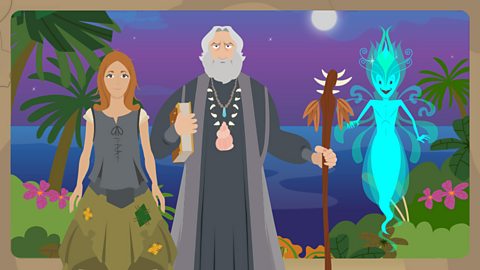
Episode 2 - Set me free. video
Prospero explains to daughter, Miranda, how the two of them came to live on the island
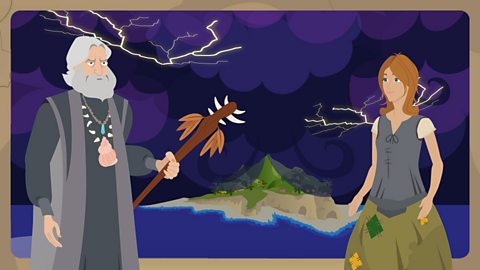
Episode 3 - Full fathom five video
Prospero and Ariel tour the island to check on those who have been washed ashore
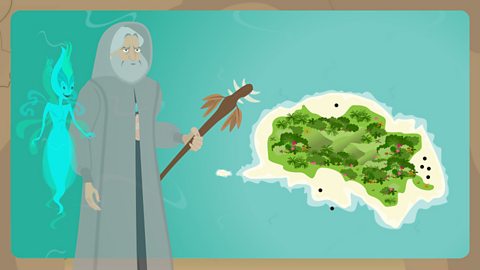
Episode 4 - Toledo steel. video
Antonio sees an opportunity - if he can persuade Sebastian to murder King Alonso
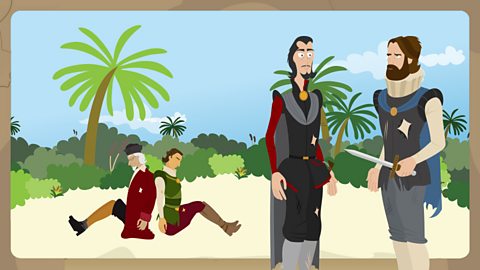
Episode 5 - Barracuda. video
Stephano and Trinculo fall in with Caliban...and plan a revolution for the island.
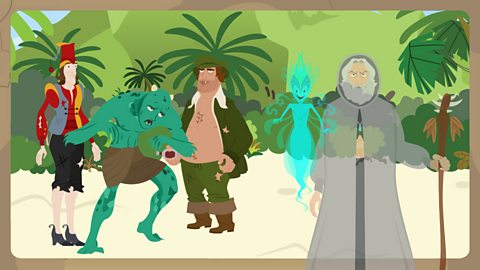
Episode 6 - Love song. video
Prospero sets Ferdinand to work. He and Miranda meet... and it's love at first sight.
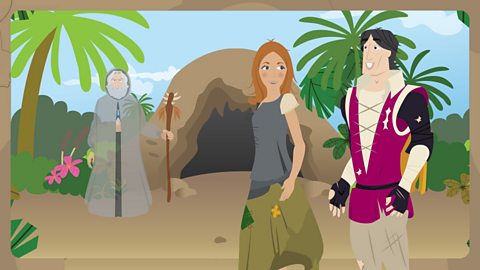
Episode 7 - Spellbound. video
Prospero has his enemies in his power and plans to publish them for their past actions
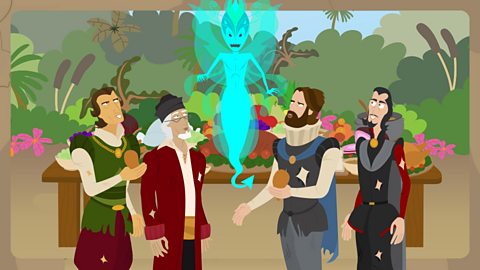
Episode 8 - Sea change. video
Prospero destroys his staff, forgives his courtiers and Ferdinand and Mirand will marry.
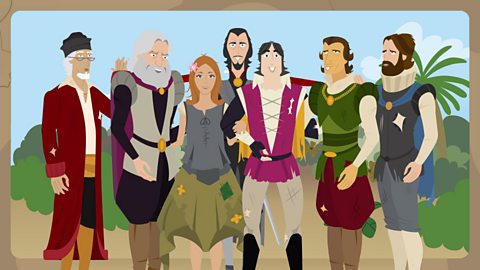
The Tempest on our Music pages
Explore our Music content on The Tempest, presented by Carrie Grant.

Series resources
Information, guidance, activity suggestions and worksheets (pdf)
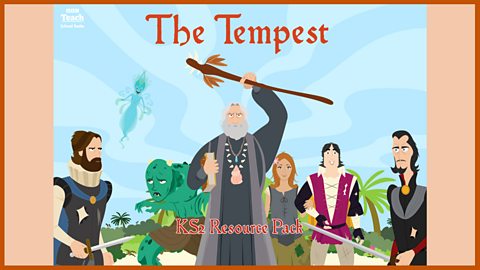
Meet the characters. image
Meet the characters from The Tempest

Number the images in the correct order that they appear in the story.
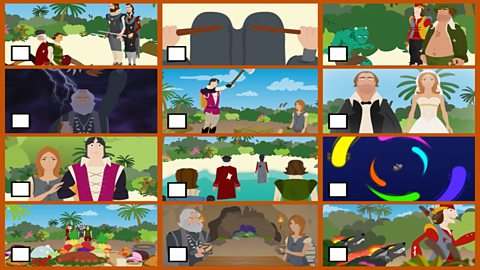
Introduction
This series provides various opportunities to meet Key Stage 2 National Curriculum requirements, including study of a significant author, reading techniques such as prediction, drawing inferences, clarification and summary; and drama and writing opportunities - including poetry performance, descriptive writing, persuasive writing, letter writing, newspaper article writing, poetry and play scripts.
It could be used as an introduction to the play, consolidation of key aspects or for revision of the plot and characters.
This series is relevant for teaching English at KS2, in England and Wales and Northern Ireland, and at Second Level in Scotland.